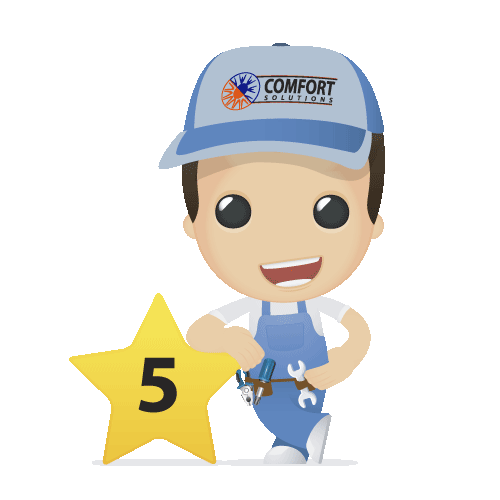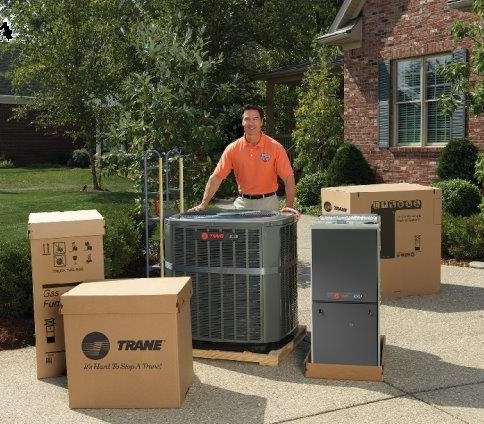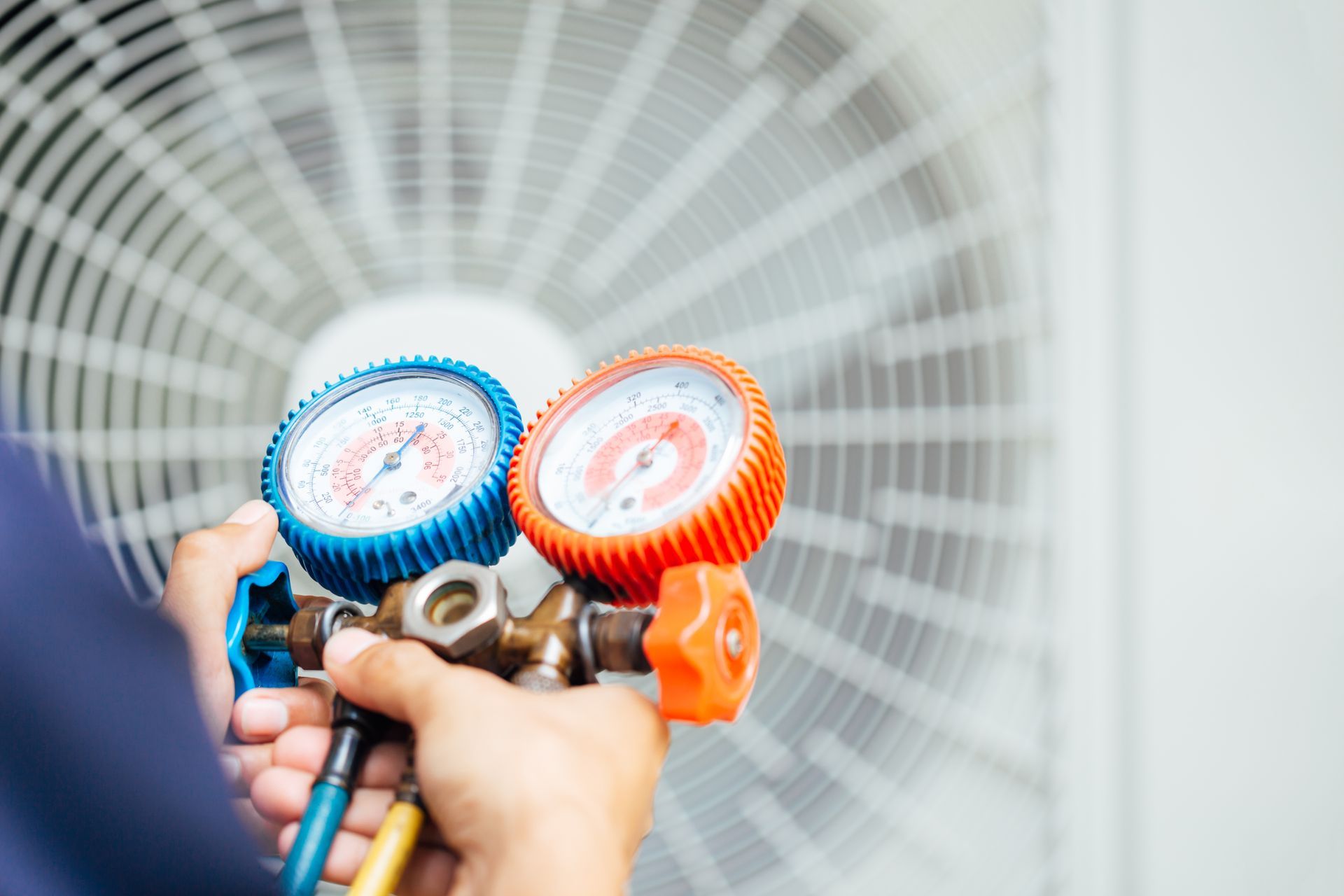Replacing Furnace and Air Conditioner Together...It’s not easy to know whether you should repair or replace your home’s heating and cooling system, especially if you’re facing an emergency. While there’s no hard-and-fast rule, there are some important considerations to keep in mind as you make your decision.
Age of your system
Air conditioners and heat pumps last an average of 10 to 12 years, while furnaces have a life span of around 15 to 20 years. If your equipment is within those ranges, expect more repairs soon.
Outdated technology
Technology changes all the time. This is as true for your heating and cooling system as it is for your phone. By replacing aging equipment, you’ll be able to take advantage of smart new features and increased efficiencies that can save you money on your utility bills.
Cost of repairs
As a good rule of thumb, Consumer Reports recommends replacing a product when repairs exceed 50% of the cost of a new one. Reproable installers are a great resource for current promotions that could significantly reduce the cost of a new system.
Tax credits
Purchasing high-efficiency systems can make you eligible for state and local tax credits. There may be federal tax credits available as well.
Utility rebates
Many local utility companies also offer incentives for upgrading to high-efficiency systems. By replacing your older system with a high-efficiency one, you’ll not only benefit from these one-time rebates and credit.
Size and capacity of your system
If you’re concerned with your energy footprint, you may be surprised to know that your heating and cooling system accounts for about 50% of your home’s energy use. Upgrading to qualified equipment ensures your units meet or exceed federal standards for energy efficiency.
How well your system is performing
Do you feel like you must constantly adjust your thermostat to stay comfortable? Does your air conditioner or furnace make noises when it starts up? Does your air feel stuffy or damp? If any of these issues are getting in the way of your home comfort, it may be time to get a new system installed.
Purchasing a New Energy Efficient System with the Right Professional
When it comes to choosing the system that’s right for your home, you’ll need to consider the size of your home, your heating and cooling needs, your budget, available tax credits, whether your home has duct-work, the climate in your area, and of course, the advice of a HVAC professional. The last thing you want is to invest in a quality system that simply isn’t the right fit.
Here are a few tips to help you choose a HVAC technician:
1. Experience Is Most Important
For obvious reasons, technicians should have completed a few jobs. It's in your best interest to work with up-to-date and experienced contractors. Less qualified companies may not keep their employees or techs current with the latest technology. This may cause you from having a newer or more current design.
2. Proper Credentials Through Continuous Education
Most established contractors are properly certified. The HVAC Excellence is a certification program for HVAC technicians that will ensure their work quality through validation and continuing education. All certifications should be up to date. You can also find qualified technicians through such organizations as:
NATE - (National Association of Technical Excellence)
RMGA - (Rocky Mountain Gas Association)
3. Low Cost May Not Be Energy Efficient
Getting the best price is always good, but make sure you are getting the best service with the price and the latest in technology. Ask about your options.
4. Referrals are Key
Before a person gets hired at a new job, the employer asks for references. You should do the same when hiring a HVAC technician. It's often a great place to start with recommendations from friends and family in the area.
5. Review
Consider reading some reviews from past customers of technicians. You can usually find these on their website. Online directories may also post reviews. Good and not so good reviews can be the determining factor for which HVAC technician you choose.
Age of your system
Air conditioners and heat pumps last an average of 10 to 12 years, while furnaces have a life span of around 15 to 20 years. If your equipment is within those ranges, expect more repairs soon.
Outdated technology
Technology changes all the time. This is as true for your heating and cooling system as it is for your phone. By replacing aging equipment, you’ll be able to take advantage of smart new features and increased efficiencies that can save you money on your utility bills.
Cost of repairs
As a good rule of thumb, Consumer Reports recommends replacing a product when repairs exceed 50% of the cost of a new one. Reproable installers are a great resource for current promotions that could significantly reduce the cost of a new system.
Tax credits
Purchasing high-efficiency systems can make you eligible for state and local tax credits. There may be federal tax credits available as well.
Utility rebates
Many local utility companies also offer incentives for upgrading to high-efficiency systems. By replacing your older system with a high-efficiency one, you’ll not only benefit from these one-time rebates and credit.
Size and capacity of your system
Upgrades that enhance the energy efficiency of your home, such as new windows, roofing and insulation, can also affect the efficiency of your comfort system. If you’ve made improvements to your home, you might benefit from downgrading to a smaller unit. This will provide better comfort at a lower operating cost, but you can also enjoy significant utility savings every month.
Environmental impactIf you’re concerned with your energy footprint, you may be surprised to know that your heating and cooling system accounts for about 50% of your home’s energy use. Upgrading to qualified equipment ensures your units meet or exceed federal standards for energy efficiency.
How well your system is performing
Do you feel like you must constantly adjust your thermostat to stay comfortable? Does your air conditioner or furnace make noises when it starts up? Does your air feel stuffy or damp? If any of these issues are getting in the way of your home comfort, it may be time to get a new system installed.
Purchasing a New Energy Efficient System with the Right Professional
When it comes to choosing the system that’s right for your home, you’ll need to consider the size of your home, your heating and cooling needs, your budget, available tax credits, whether your home has duct-work, the climate in your area, and of course, the advice of a HVAC professional. The last thing you want is to invest in a quality system that simply isn’t the right fit.
Here are a few tips to help you choose a HVAC technician:
1. Experience Is Most Important
For obvious reasons, technicians should have completed a few jobs. It's in your best interest to work with up-to-date and experienced contractors. Less qualified companies may not keep their employees or techs current with the latest technology. This may cause you from having a newer or more current design.
2. Proper Credentials Through Continuous Education
Most established contractors are properly certified. The HVAC Excellence is a certification program for HVAC technicians that will ensure their work quality through validation and continuing education. All certifications should be up to date. You can also find qualified technicians through such organizations as:
NATE - (National Association of Technical Excellence)
RMGA - (Rocky Mountain Gas Association)
3. Low Cost May Not Be Energy Efficient
Getting the best price is always good, but make sure you are getting the best service with the price and the latest in technology. Ask about your options.
4. Referrals are Key
Before a person gets hired at a new job, the employer asks for references. You should do the same when hiring a HVAC technician. It's often a great place to start with recommendations from friends and family in the area.
5. Review
Consider reading some reviews from past customers of technicians. You can usually find these on their website. Online directories may also post reviews. Good and not so good reviews can be the determining factor for which HVAC technician you choose.
We invite you to call us today and beginning experiencing the service and quality you and your family deserve!
Call Comfort Solutions today at 801-335-9796
to learn about the importance of quality air and heating systems.
















